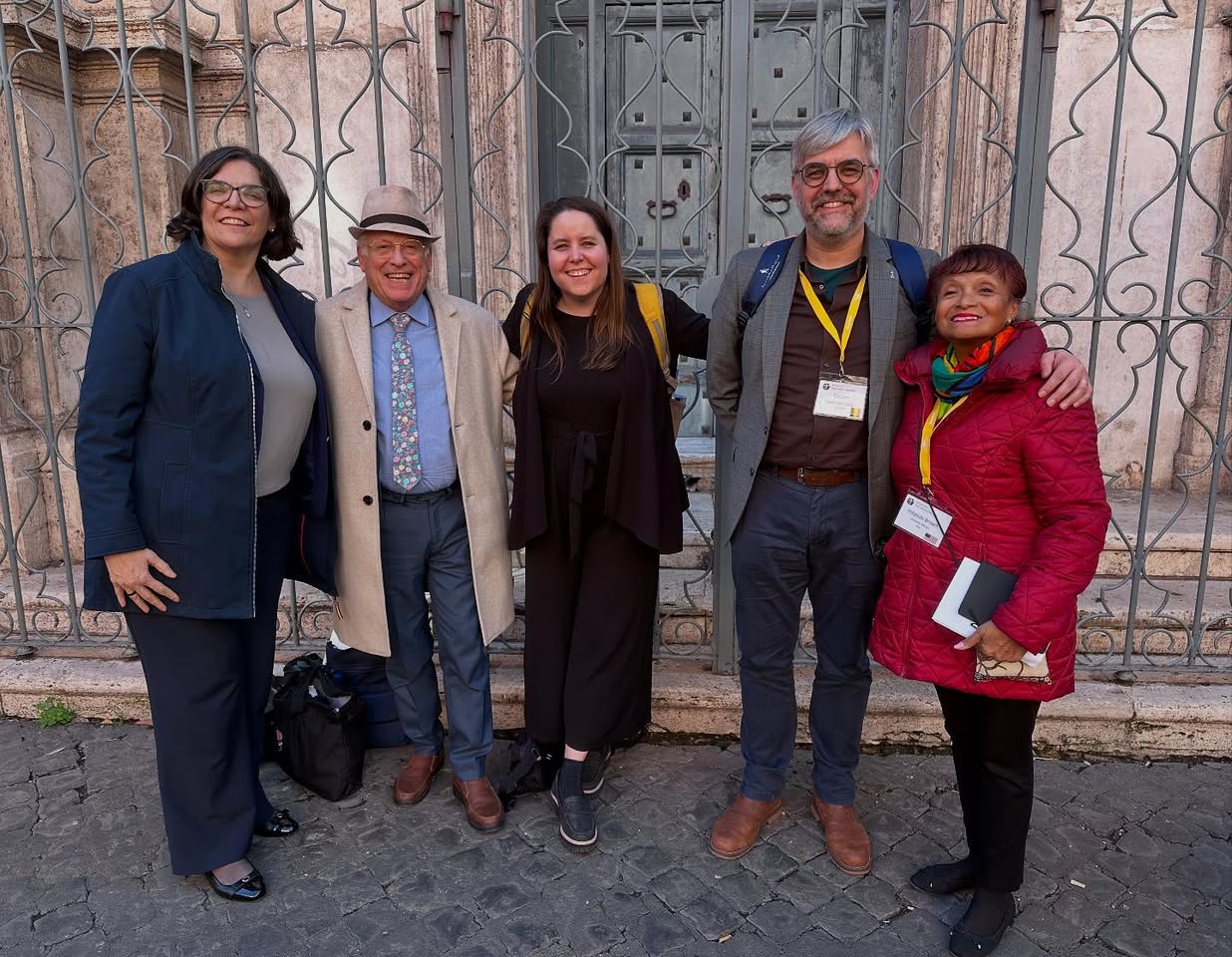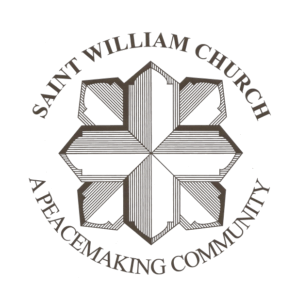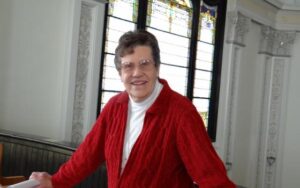Deacons – Painters of the Merciful Face of God

Deacons and their wives who traveled from around the world to Rome for the Jubilee of Deacons, Feb. 21-23, found themselves fervently praying for the health of Pope Francis, whose condition became critical.
Even so, the Holy Father’s words of hope to deacons and their families reverberated throughout the Basilica of St. Peter as his homily was read by Archbishop Rino Fisichella during a Mass with more than 4,000 deacons — around 10% of all permanent deacons worldwide! The celebration included the ordination of 23 deacons.
In his prepared remarks, Pope Francis observed that deacons offer one of the finest expressions of synodality by going forth and helping society to become a welcoming place for everyone. Charged with a ministry that takes them to the peripheries of the world, Pope Francis said that deacons are like “sculptors” and “painters” of the merciful face of the Father by becoming “apostles of forgiveness, selfless servants of our brothers and sisters, and builders of communion.”
The mission of the deacon, said the Holy Father, is a strong contrast to a world that only feels hatred towards its adversaries, which would doom it “to endless war, divisions and vendettas.”
Discerning Deacons was present for the jubilee. DD staff Anna Robertson, DD board member Dr. Yolanda Brown, and I were honored to collaborate with Deacon Enzo Petrolino, President of the Comunità del Diaconato in Italia to welcome more than 200 deacons and wives from around the world for a Conversation in the Spirit on the role of deacons in a synodal Church. Held at the Basilica of Santa Maria in Trastevere, Feb. 21, it was a gift to engage in synodal conversations with the final Synod document in English, Italian, Spanish and French.
Belgian Deacon Geert De Cubber, the only Latin Rite permanent deacon who was a member of the synod assemblies in 2023 and 2024, told the group that on Sundays, “we bring the realities of those we serve to the altar and the pulpit, ensuring that their voices and struggles are part of the church’s prayer and mission.”
Reflecting on the diaconate “inevitably raises the question of the inclusion of women,” De Cubber said, “The first Instrumentum Laboris asked, quite simply: ‘Is it possible to envisage this?’ To me, the answer is equally simple: ‘Yes’.
The Jubilee included an International Meeting of Deacons in a Synodal and Missionary Church. Italian theologian and diaconate scholar Dr. Serena Noceti, a keynote speaker, noted that deacons give voice to our collective hope in the kingdom of God, our deepest yearnings to imagine a world in which everyone can flourish.
A deacon’s hope is not about escaping the sorrows of this world, said Noceti. Deacons live in history and assume responsibility for proclaiming the reign of God – even when it is difficult.
Prior to the Jubilee of Deacons, DD participated in the Study Conference of the International Diaconate Centre (IDC) in Rome. We were inspired by the many testimonies of diakonia as well as the struggles deacons endure in places where the diaconate is not yet fully accepted. It was a reminder that the restoration of the diaconate as a permanent order following Vatican II is still in its infancy. Lithuania recently ordained the country’s first five permanent deacons.
DD was honored by the invitation from Dr. Jutta Mader-Schömer of the German Netzwerk Diakonat der Frau to collaborate on a conference workshop on women’s contributions to a synodal church. Yolanda Brown shared her testimony of serving for 10 years as Parish Life Director of a parish in Hollywood, California that included dedicated services for those without homes. When we recognize the graces poured out on all the baptized, she said, “we become the diakonia that only God can imagine.”
As a pilgrim of hope participating in this Jubilee of Deacons, I carried with me the prayers, hopes, and ministry of the deacons I have encountered – those who minister humbly, with or without ordination, to make real the presence of a God whose love and mercy is ever new.


